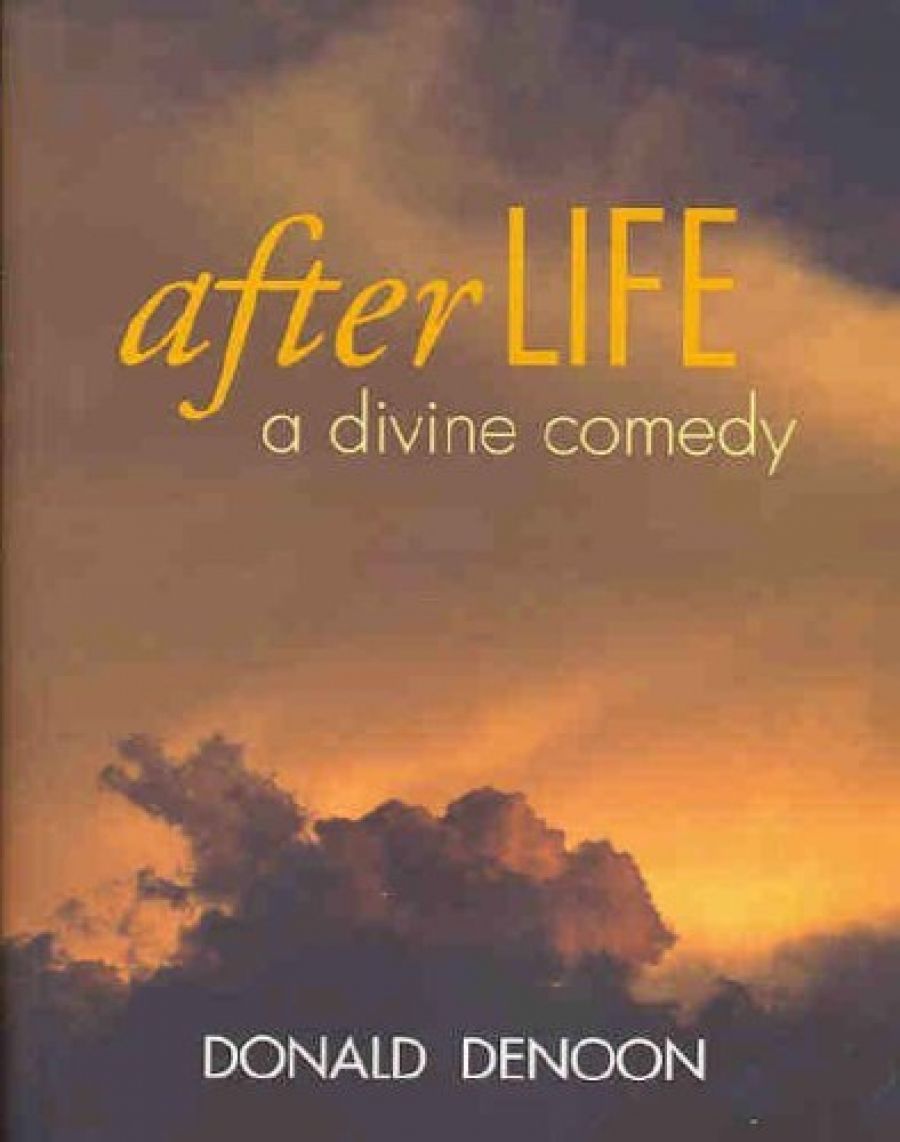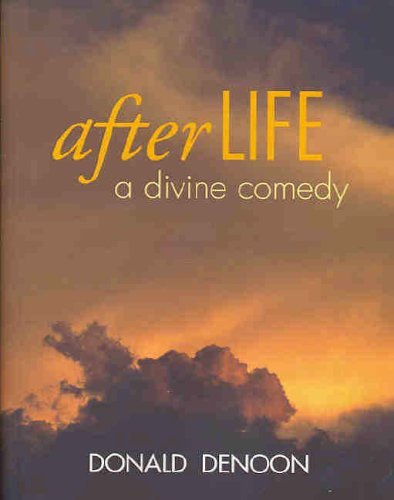
- Free Article: No
- Contents Category: Fiction
- Review Article: Yes
- Article Title: Bill Pearly Gates
- Online Only: No
- Custom Highlight Text:
When faced with a new dictionary of quotations, I always test drive the section on heaven first.
This is despite the fact that the section on hell is generally longer and more engaging. My habit is a bit like reading travel porn about the ultimate destination. It’s also a good way to acquire wisdom without much effort as I wait for some kind soul to come to my rescue and publish Wisdom for Dummies, the next volume in that useful series which is still marred by some notable gaps. Parents will look in vain for Soothers for Dummies, and shopfitters won’t find Mannequins for Dummies.
- Book 1 Title: Afterlife
- Book 1 Subtitle: A divine comedy
- Book 1 Biblio: Pandanus, $29.95 pb, 254 pp
- Book 1 Cover Small (400 x 600):

- Book 1 Cover (800 x 1200):

Mark Twain and Oscar Wilde figure in most categories in any dictionary of quotations worth quoting. Twain commented that he didn’t like to commit himself about heaven and hell because he had friends in both places. He also said that each place ‘had its advantages – heaven for climate and hell for society’. George Bernard Shaw tends to rank not far behind Twain and Wilde as a source of quotations. He stated that: ‘Heaven, as conventionally conceived, is a place so inane, so dull, so useless, so miserable, that nobody has ever ventured to describe a whole day in heaven, though plenty of people have described a day at the seaside.’
I don’t know to whom Shaw spoke these words, but it wasn’t Donald Denoon. They may have persuaded Denoon to reconsider not so much the fundamental structure of this novel as the balance of its parts. He wastes too much time on the dull bits, spending too much time in heaven and not enough at the seaside.
Afterlife is the comic story of a square peg in a round hole. Geoffrey Kingston grew up in a part of Queensland that he calls Cardigan City, a name that is not intended to indicate excitement. As a young man, he comes under the influence of the Anglican Father Weedes. Denoon’s wry presentation of Brisbane high Anglicanism is one of the best sections of the book. He is most astute, and most funny, when he is most concrete: ‘Father Weedes walked me through the Articles of the Creed like a keen gardener pointing our blooms ... He was sharing knowledge, not commitment.’
Kingston’s affair with Anglicanism is the beginning of a life of infidelity to his class origins and, indeed, the beginning of a life of infidelity in general. His father was a staunch unionist and a lifelong believer in the cause of Labor. His sister, Celia, became a feminist but was killed when a disgruntled man discovered the whereabouts of the women’s refuge in which she was working and launched an attack on it.
Geoffrey’s own life has followed a different trajectory. At church, he encounters Althea and Winifred Jolliffe. He ends up marrying Winifred, press-ganging a couple of acquaintances from work to act as groomsmen, but he was really more interested in Althea, a mistake he corrects after a time by embarking upon a low-adrenaline affair with the preferred sister. Everything Geoffrey does in life is fairly low-adrenaline. He is a being without purpose, a fact that does not prevent him from making a pot of money as a consultant, fearlessly downsizing corporations and persuading business people that they owe a higher allegiance to a benign mythical being called ‘the market’ than they do to any human being. The market may seem a little hard-hearted at times, but, in the long run, it has everyone’s best interests at heart. Denoon invites us to laugh at such gibberish.
The earthly part of Afterlife is quick-witted and alive. But unfortunately, Geoffrey dies too soon. At the age of forty-nine, in the middle of a scandalous affair with the wife of the American ambassador, on a flight where he is annoyed by the low-life characters who win competitions and end up sharing the business-class section with him, he dies. Geoffrey is then surprised to find himself in heaven. The reason he has been plucked from life is that management has a problem. Too many individuals from too many religious traditions have found a loophole and, qualifying as Poor in Spirit (PinS), they are getting into heaven. Geoffrey, who might reasonably have expected to find himself in hell, is needed to help. Heaven needs a management consultant.
At this point, Denoon is on the brink of a superb farce. But he doesn’t pull it off. Afterlife falls well short of the promise of its opening chapters. The problem is that the descriptions of heaven rest upon too many weak puns of the ‘what the hell’ and ‘what on earth’ variety. Furthermore, Denoon is inclined to move into subtle loops of abstract thought that don’t stand up as comedy. Denoon is a broadminded and searching writer. He is inclined to forget that comedy is precise.


Comments powered by CComment